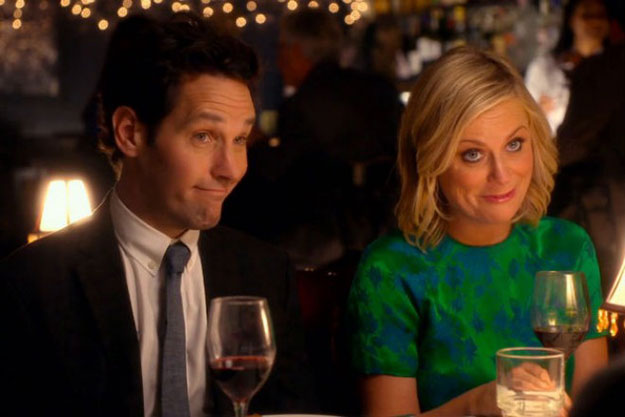Welcome to another edition of Three Easy Pieces, where I look at a cul-de-sac of pop culture, from its birth to how it looks today. Since we're bracing for another Valentine's Day, I figured it was time to talk about anti-romantic comedies. Though what precisely defines an anti-romantic comedy can be a little murky, what we know is this: any movie that subverts the basic tropes of rom-coms can count in my book. The tone and execution of this requirement can be done in any number of ways, hence a good amount of variance in the selection I've chosen. All that can be said is that, if you're looking for the dopamine rush of classic rom-coms like When Harry Met Sally ... or Sleepless in Seattle, that won't be found here.
Honorable mention: Harold and Maude, The Graduate, Annie Hall, About Last Night ...
Enough has been said about the true juggernaut of OG anti-romantic comedies, Annie Hall. So, let's take that opportunity to run in the opposite direction of Woody Allen, and instead explore Albert Brooks' 1981 masterpiece, Modern Romance. Brooks had previously written and directed the spookily prescient Real Life, which managed to predict the future of reality television, but it was Modern Romance where he shows how perceptive he can be about relationships.
The movie opens with Robert (played by Brooks) breaking up with his saintly girlfriend, mostly due to his neurotic over-examination of what their relationship means. Robert spends the rest of the film in a chaotic spiral into self-pity, feigns at self-improvement and getting back into the dating scene, and pining pathetically for his ex. Modern Romance is quick, episodic, and consistently hilarious, as if Brooks is fitting in every observation he's ever had about relationships into a tight 90 minutes. When the ending comes, it seems clear that Robert is incapable of truly growing as a person -- no life-changing kiss in the pouring rain to be found here.
DEVELOPMENT: The Before... Trilogy (1995, 2004, 2013)
Honorable mention: Mr. Jealousy, Chasing Amy, Eyes Wide Shut, Punch-Drunk Love
In Richard Linklater's The Before... Trilogy, consisting of Before Sunrise, Before Sunset, and Before Midnight, there's plenty of romance, and a good deal of humor, but what they lack is the tidy resolution of a romantic connection between its two leads. This is a series of films that leaves you hanging for years and years to find out whether or not these two lovebirds will ever really get together -- and even after, what then?
The first film in the series, Before Sunrise, has a very simple premise: Jesse (Ethan Hawke) meets Celine (Julie Delpy) in Vienna, and spend the whole night wandering around the city, talking about anything and everything that crosses their mind. It's the kind of freewheeling, pseudo-intellectual conversation that will be familiar to anyone who has been a young romantic. But, after the night's over, they part ways, only to meet again in Before Sunset, years older and a little wiser. After so much foreplay, Before Midnight caps everything off with an admirably unflinching look at a relationship. The series is a study in how to avoid easy payoffs and storybook endings.
TODAY: They Came Together (2014)
Honorable mention: Celeste and Jesse Forever, 500 Days of Summer, Drinking Buddies, Isn't It Romantic
If the previous two entries were nuanced deconstructions of romantic comedies, this one is the Saturday morning cartoon version. David Wain's They Came Together does for romantic comedies what Walk Hard: The Dewey Cox Story did for music biopics (and what Wain's own Wet Hot American Summer did for summer camp movies). In hilarious, granular fashion, They Came Together picks apart every single trope common in romantic comedies, spinning them into deeply absurd caricatures that only grow more surreal as the film goes on. From the beginning, the story of how Joel and Molly (Paul Rudd and Amy Poehler) came to fall in love is rife with silly references to other movies that the rom-com aficionado in your life will delight in recognizing. Like Walk Hard before it, They Came Together comes this close to actually dismantling the genre it's parodying.
Three Easy Pieces will return, next month, with: Alt-country.





Read Comments